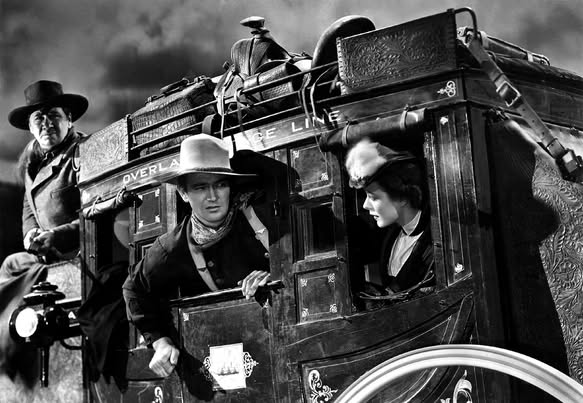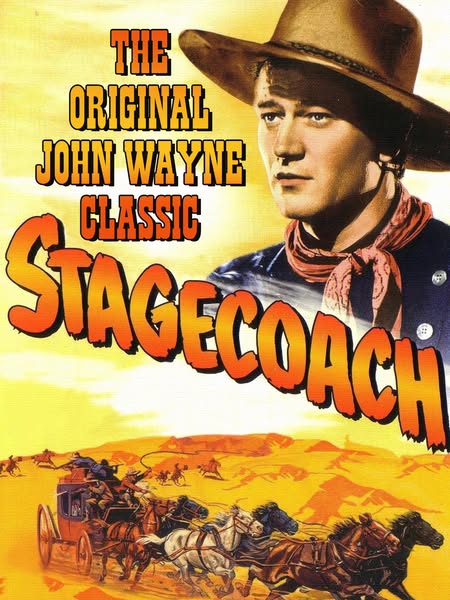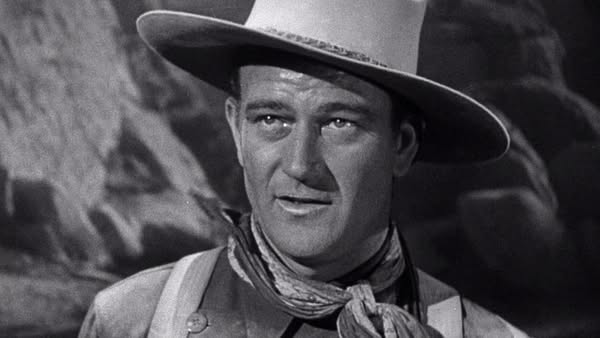Stagecoach (1939)

“Stagecoach,” directed by John Ford and released in 1939, is a landmark Western film that played a significant role in establishing the genre’s conventions. Starring John Wayne as the iconic character Ringo Kid, the film features a strong ensemble cast, including Claire Trevor, Andy Devine, and Thomas Mitchell.
The story follows a diverse group of passengers traveling on a stagecoach through dangerous territory in the American West. As they journey from Tonto, Arizona, to Lordsburg, New Mexico, they must navigate both natural obstacles and the threat of an Apache attack. The characters include a refined Southern woman, a drunken doctor, a lawman, and a pregnant woman, each bringing their own unique backgrounds and conflicts into the enclosed space of the stagecoach.

Ford’s direction is notable for its dynamic storytelling and visual composition, capturing the vast landscapes of the West and the tension inherent in the journey. The film’s cinematography, particularly its use of wide shots to showcase the rugged terrain, enhances the sense of adventure and peril.
John Wayne’s portrayal of Ringo Kid is both charismatic and complex, embodying the archetypal Western hero. The film explores themes of honor, redemption, and the clash of social classes, as the characters confront their prejudices and personal demons during the journey.

“Stagecoach” was groundbreaking for its time, elevating the Western genre from B-movie status to serious cinema. It received critical acclaim and was nominated for several Academy Awards, with Thomas Mitchell winning for Best Supporting Actor.

In conclusion, “Stagecoach” is a seminal film in the Western genre, celebrated for its compelling characters, rich storytelling, and stunning visuals. Its influence can be seen in countless Westerns that followed, solidifying its status as a classic of American cinema.











